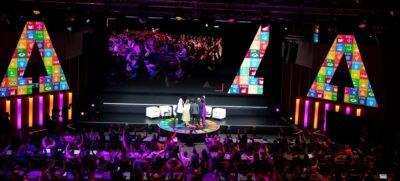Highlights This Week
End of August updates on AI developments in the Global Majority (Global South) are summarized below:
- Africa – Agenda 2063 Monitoring: The African Development Bank, through its Joint Secretariat Support Office, provided technical and financial support for a new AI training initiative at the African Union’s 5th Annual Training Workshop. Held in Lusaka, the workshop taught government representatives to use AI tools (e.g., Alisye, ChatGPT, Google AI Studio, Gemini, Perplexity) to monitor, evaluate, and report progress on the Agenda 2063 Second Ten-Year Plan. The initiative forms part of broader efforts to strengthen institutional and human capacity across AU member states.
- Landlocked Developing Countries: At the August 5, 2025, science‑and‑technology roundtable of the Third UN Conference on Landlocked Developing Countries, ministers and experts urged LLDCs to harness climate-smart agriculture and ethically governed AI as development tools. Speakers noted that properly regulated AI can expand access to education, improve disaster forecasting, and support digital trade, while warning that unregulated AI may deepen inequalities and calling for robust regulatory frameworks.
- Ethiopia – Reboot the Earth Hackathon: During the “Reboot the Earth Ethiopia” challenge (August 9–10, 2025), young innovators utilized AI to develop solutions for smallholder farmers. The winning team created AgriLo, an AI-powered mobile assistant that combines weather forecasts, soil‑sensor data, and AI-driven recommendations to provide personalized advice on watering, fertilizer application, and disease response. The tool includes voice-based interaction to support farmers with limited literacy.
- Global – Reboot the Earth 2025 (Rome): FAO’s Science and Innovation Forum will host a “Reboot the Earth” hackathon in Rome (August 7, 2025), where students and professionals co-create AI-powered, open‑source prototypes for climate-resilient agrifood systems. Participants work on real-world use cases, learn from mentors in digital agriculture, AI, and sustainability, and contribute to a movement for open and ethical AI in food systems.
- Asia & Pacific – AI in Healthcare Training: The Asian Development Bank Institute (ADBI), in partnership with ADB, ICDF, and JICA, organized a 5-day workshop in Yokohama (4–8 Aug 2025) on “Artificial Intelligence: Applications in Healthcare”. The training explored how AI can optimize workflows, improve efficiency, and reduce costs, while emphasizing the importance of data security, transparency, and a skilled workforce. Governments were advised to address infrastructure, governance, and financing to integrate AI into their health systems, and officials from 16 Asia-Pacific countries shared best practices.
- Global Governance: On August 26, 2025, the UN General Assembly established two mechanisms – an independent scientific panel and a global dialogue – to bridge the gap between research and policy, and guide international cooperation on AI governance.
- Higher‑Education Transformation: At a TICAD‑9 side event (August 20), the UN University emphasized equitable access to AI-driven learning tools to transform higher education in Africa and align AI use with the SDGs.
- Fintech Growth: Fintech News Africa highlighted a Mastercard whitepaper projecting Africa’s AI market to grow from US$4.5 billion in 2025 to US$16.5 billion by 2030. AI-driven lenders, such as Tala and Jumo, are expanding financial inclusion by analyzing non-traditional data.
- National Strategies: Burkina Faso convened a workshop to draft its first National AI Action Plan, prioritizing infrastructure expansion, data governance, human capital development, ethics, and international cooperation. Namibia released an AI readiness assessment that identified legal, technical, social, and economic gaps and proposed a National Responsible AI Institute and high-performance computing centers.
- Education and Youth: Nigeria’s first AI summer camp trained 60 children and aims to reach one million young people by integrating AI into national curricula.
- Regional Initiatives:
- Kenya will host Africa’s first AI Policy and Innovation Conference (AIPAC 2025) in Mombasa to co-design national AI strategies and conclude with a “Mombasa Declaration on Responsible AI”.
- Latin America’s CENIA is preparing Latam‑GPT, an open-source 50‑billion‑parameter language model trained on millions of regional documents to serve the banking, healthcare, and education sectors.
- In Southeast Asia, an ADB webinar introduced “augmented intelligence” to prepare labor markets for generative AI-driven job changes.
- Funding and Training:
- The International Development Research Centre and the UK FCDO launched a call for research proposals on the socio-economic impacts of AI in Africa.
- At TICAD 9, Japan pledged to train 30,000 AI experts and provide US$5.5 bn in loans to accelerate Africa’s digital transformation.
- Orange announced plans to deploy OpenAI models to translate African languages for public services across its 18-country footprint.
Check in next week for more updates and comment to join our conversation on AI for Development.


